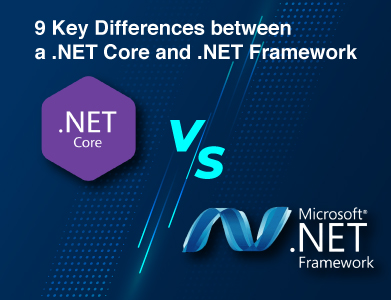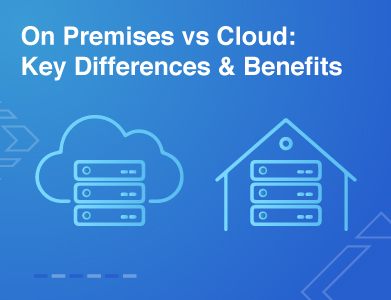Choosing the right type of developer can be a tough decision, but it really depends on your specific needs and the scope of your project. To help you make an informed choice, we’ve prepared a detailed comparison between dedicated developers and freelance developers in this blog.
By the end of this post, you’ll have a clearer picture of which option might be the best fit for your project’s requirements.
Blog Overview:
- Introduction: Understanding the difference between dedicated developers and freelancers.
- Dedicated Developers: Roles and responsibilities.
- Freelancers: Roles and responsibilities.
- Key Differences: Contrasting dedicated developers vs. freelancers.
- Advantages: What makes each option beneficial.
- Challenges: Potential drawbacks of each approach.
- When to Choose: Situations where one option may be preferable over the other.
- Use Cases: Practical examples to guide your decision.
- FAQs: Common questions and answers about hiring developers.
So, let’s dive right in without further ado!
.jpg)
Who are Dedicated Developers?
The term ‘dedicated developers’ is quite self-explanatory—they are professionals committed to one company at a time. They use their expertise to meet the client’s goals, often resulting in a deeper understanding of the company’s needs.
What Do Dedicated Developers Do?
Dedicated developers are either full-time or part-time professionals who work exclusively on your project, often as part of a dedicated team from a development agency.
Dedicated developers are ideal for tailored software solutions as they promote consistency, reliability, and a sense of ownership.
Who are Freelance Developers?
Freelance developers are the swiss army knives of the tech world, enjoying the freedom to choose their projects, clients, and working hours, making them incredibly flexible and adaptable. They work on a contract basis, often specializing in specific programming languages or technologies.
What Do Freelancers Do?
Freelancers operate independently, often handling specific tasks or components of a project. They are typically hired to address particular needs that require distinct expertise, making them a flexible resource for project-specific challenges.
The Role of Dedicated Developers
Dedicated developers play a critical role in projects where long-term commitment and consistent progress are necessary. They integrate closely with your team, ensuring that everyone is aligned and moving towards the same goals. Their involvement can significantly impact the quality and continuity of your project.
The Role of Freelancers
Freelancers are best suited for projects that need quick turnarounds or specialized skills for short-term tasks. Their ability to jump in quickly, with little to no long-term commitment, provides great flexibility in managing project costs and timelines.
Comparison of Dedicated Developers vs. Freelance Developers
Availability and Dedication: Dedicated developers work regular hours and are committed like in-house staff, while freelancers work according to their schedule and juggle multiple projects.
Long-term Partnership: Dedicated developers are often chosen for ongoing collaboration, whereas freelancers are typically for short-term or specific projects.
Cost Framework: Dedicated developers have a predictable salary structure, while freelancers charge based on hourly rates or project fees, which can be unpredictable.
Specialization of Skills: Dedicated developers develop deep expertise in technologies relevant to your projects, while freelancers might have varied levels of specialization.
Advantages of Hiring Dedicated Developers
- Expertise with Various Technology: Dedicated developers are often hired for their specific technical skills, allowing companies to choose the best talent for backend and frontend development, ensuring access to top-tier developers.
- Increased Productivity Level: As full-timers, dedicated developers begin tasks immediately and follow procedures meticulously, enhancing the quality of their output.
- Fluent Cooperation: Being embedded within your industry, dedicated developers have a better grasp of your project, facilitating smoother cooperation and communication.
- Better Focus: Dedicated developers focus solely on your project, which prevents distractions and keeps them up-to-date with industry trends, giving you a competitive edge.
- Quality over Quantity: Focusing on a single project allows dedicated developers to produce high-quality, robust, and error-free code.
- Safety and Security: With dedicated developers, data security is heightened as their focus on one project reduces the risk of breaches.
- Cost-effective in the Long Run: While initially more expensive, dedicated developers can be more economical over time due to their reliability and efficiency.
- Endless and Quality Support: Providing continuous support, dedicated developers foster a trustworthy relationship with their clients.
Challenges of Hiring Dedicated Developers
- Higher Cost: Dedicated developers generally come with higher upfront costs due to their long-term engagement.
- Resource Intensive: Onboarding and integrating dedicated developers can require significant time and resources.
- Flexibility: Changing project scopes can be more challenging to manage with dedicated teams.
Advantages of Hiring Freelance Developers
- Less Responsibility and Supervision Needed: Hiring freelancers reduces the need for benefits, oversight, and long-term commitment.
- Global Accessibility: You can hire freelancers from anywhere in the world, giving you access to a vast pool of talent.
- Access to Their Own Tools: Freelancers bring their own tools and resources, eliminating extra costs for your company.
- Less Administrative Work: Freelancers require minimal paperwork with quick onboarding compared to full-time developers.
- Project Accountability: Freelancers depend on their reputation and client satisfaction, often resulting in high-quality work.
- Quality Control: You can hire different freelancers for various stages of your project, allowing independent quality checks.
Challenges of Hiring Freelance Developers
- Variable Availability: Their availability can be less predictable due to commitments to multiple clients.
- Communication Barriers: Remote work and different time zones can lead to communication delays, making real-time collaboration more challenging.
- Limited Integration: Freelancers may not fully immerse themselves in the company's culture or long-term vision, which can affect overall alignment and quality.
When to Choose Dedicated Developers
- Long-Term Projects: For projects that require sustained effort, continuity, and comprehensive support, dedicated developers are a better choice.
- Complex Systems: If your project involves intricate development, testing, and design that necessitates deep understanding and collaboration.
- Team Collaboration: When seamless teamwork is essential across multiple departments and project stakeholders.
When to Choose Freelancers
- Short-Term Projects: Ideal for isolated features, quick fixes, and urgent bug patches that don’t require long-term involvement.
- Budget Constraints: For projects where the budget is limited and cannot accommodate full-time salaries.
- Niche Expertise: When specific technical challenges or specialized skills are required.
Use Cases
- Dedicated Developers: A growing healthcare tech company hires a dedicated development team to design and maintain a secure, scalable, HIPAA-compliant telehealth platform requiring ongoing updates and customer support.
- Freelancers: An e-commerce business collaborates a freelance developer to optimize its website’s performance and user experience during peak holiday shopping seasons.
Conclusion
Deciding between dedicated developers and freelancers boils down to understanding your project's unique needs, duration, and available budget. Dedicated developers offer unparalleled stability and integration, while freelancers bring flexibility and cost-effective solutions for targeted challenges. By carefully considering these differences, you can choose the best model that aligns with your project’s goals and strategic direction.
Need help deciding which development model suits your project?
Contact us today for a tailored consultation to find the best solution for your business.
01How can I ensure quality and timeliness with freelancers?
Clear project scopes, timelines, and expectations, combined with regular check-ins, help align freelance work with your standards.
02When is it not cost-effective to hire dedicated developers?
For small or short-term projects that don't require sustained attention or ongoing development.
03 Can dedicated developers work remotely?
Absolutely. Many dedicated teams are equipped to work remotely, maintaining consistent communication and productivity through digital tools.
04How do I know which model suits my project best?
Assess your project's complexity, duration, and budget while factoring in the skills required and your team's ability to manage the integration.
.jpg)









